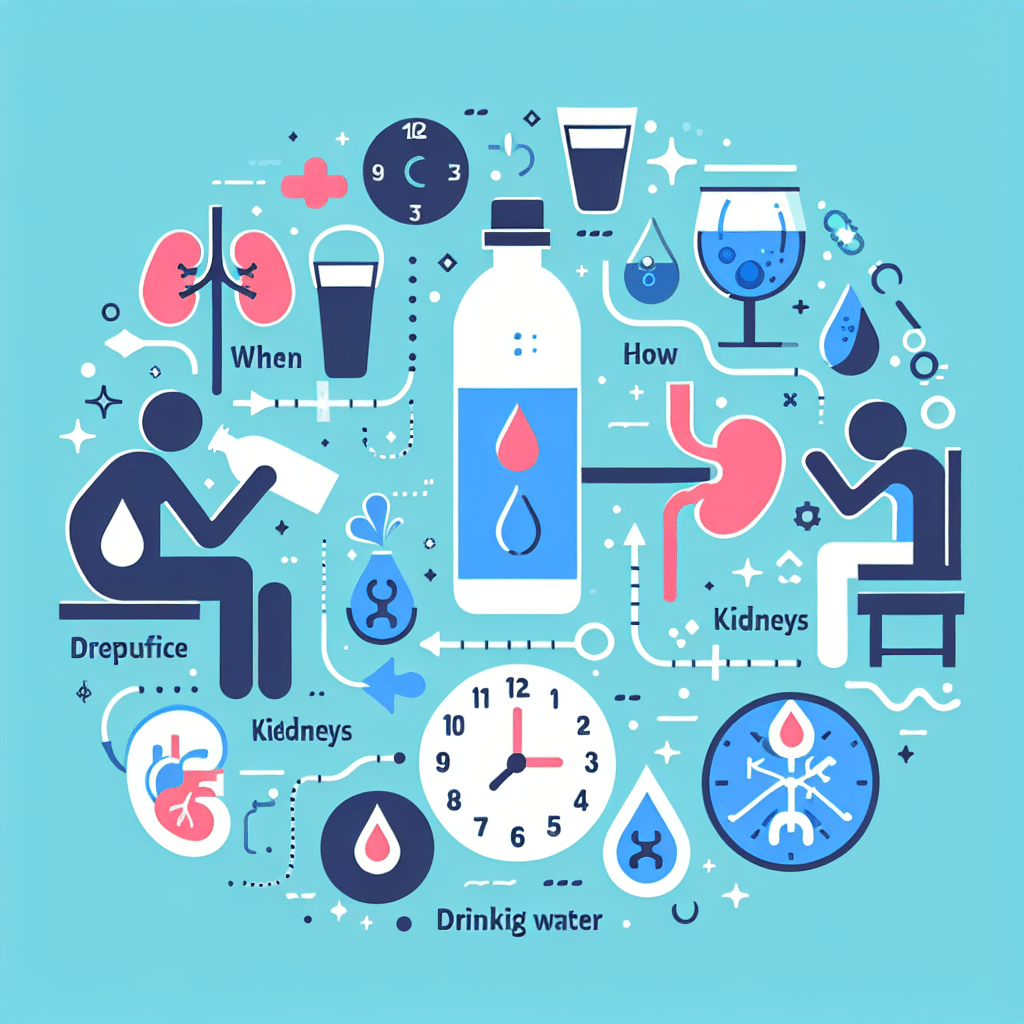The Ultimate Guide to Hydration: When, How, and Why You Should Drink Water

Introduction
Water is the lifeblood of our bodies and plays a critical role in our overall health and well-being. From regulating body temperature to aiding in digestion, water is involved in almost every bodily function. Yet, many of us fall short of the recommended daily water intake, leading to dehydration and its associated health risks. This article aims to provide a comprehensive guide to hydration, explaining when, how, and why you should drink water.
The Importance of Hydration
Water makes up about 60% of our body weight and is essential for our survival. It helps transport nutrients and oxygen to our cells, flushes bacteria from our bladder, aids digestion, prevents constipation, normalizes blood pressure, stabilizes the heartbeat, cushions joints, protects organs and tissues, and regulates body temperature.
"Water is the driving force of all nature." - Leonardo da Vinci
How Much Water Should You Drink?
The amount of water a person needs can vary depending on a variety of factors, including age, sex, weight, physical activity level, and overall health. However, a general rule of thumb is to aim for 8-10 glasses of water per day, which is approximately 2 liters, or half a gallon. This is known as the "8x8 rule" and is easy to remember.
When Should You Drink Water?
It's important to maintain a consistent intake of water throughout the day. Start your day with a glass of water to kick-start your metabolism. Drink water before each meal as it aids in digestion and prevents overeating. It's also crucial to rehydrate by drinking water after exercise to replace the fluids lost through sweat. Lastly, have a glass of water before bed to replenish any fluid loss that can occur during the night.
Recognizing Dehydration
Dehydration occurs when you lose more fluid than you take in, and your body doesn't have enough water to carry out its normal functions. Early signs of dehydration include thirst, darker urine, and decreased urine production. In severe cases, dehydration can lead to confusion, dizziness, and unconsciousness.
"You're not sick; you're thirsty. Don't treat thirst with medication." - Dr. F. Batmanghelidj
The Role of Hydration in Heart Health
Staying hydrated is crucial for heart health. When you're dehydrated, your heart has to work harder to pump blood. This can lead to an increase in heart rate and a decrease in blood pressure. Over time, chronic dehydration can lead to serious heart health issues, including heart disease.
According to a study published in the European Journal of Nutrition, proper hydration can improve heart health by affecting the heart rate and other cardiovascular factors.
Conclusion
Water is a vital resource for our bodies, and maintaining proper hydration is crucial for our overall health. It's important to drink enough water throughout the day and recognize the signs of dehydration. Remember, hydration plays a significant role in heart health, so make it a priority to stay hydrated.
"The best way to keep your heart in a healthy state is by drinking plenty of water." - Anonymous
Summary
Hydration is crucial for our overall health and well-being. Water aids in various bodily functions, including digestion, regulating body temperature, and maintaining heart health. Aim for 8-10 glasses of water per day, and ensure to drink water throughout the day, especially before and after meals and exercise. Recognize the signs of dehydration and take immediate action. Remember, your heart health is significantly influenced by your hydration levels, so make it a habit to stay hydrated.



